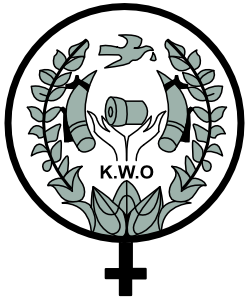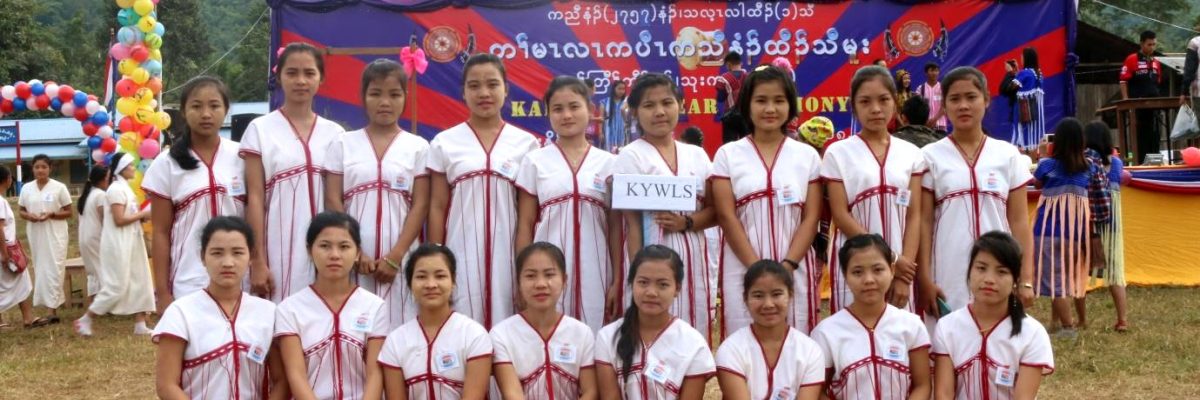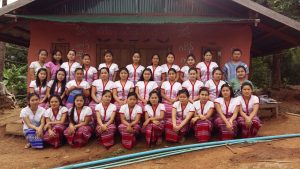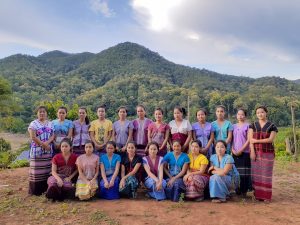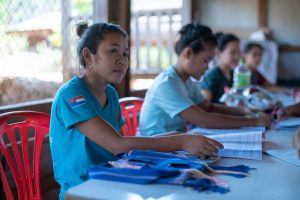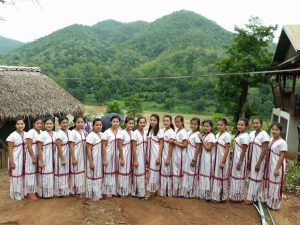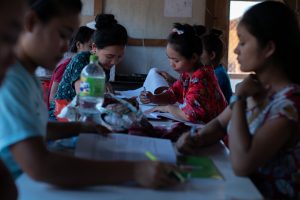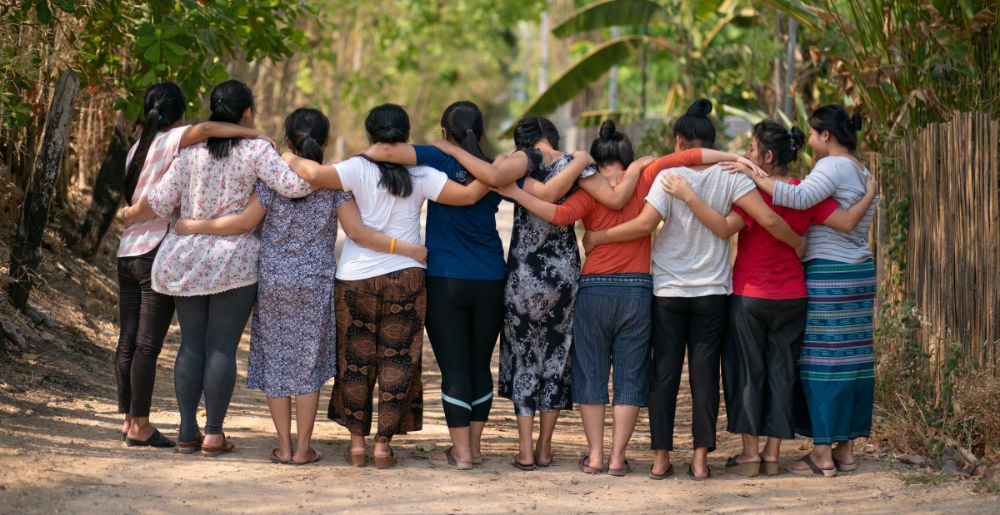Education is one of the most effective tools for women’s empowerment and we believe youth are real change makers in every society. KWO designed this school especially for young women, to ensure there is a safe place where they can acquire the skills and knowledge to participate actively as leaders in our community and to bring about positive change.
1. Project Goal
To empower young women to work in the community, and to have a voice in their community, and so increase the number of women working at all levels of the Karen community.
2. Location
The school is situated at Ho Kay village beside the Salween River, in Karen State. The students come from all 7 districts in Karen State and from the refugee camps.
3. Overview
KWO established the Karen Young Women’s Leadership School (KYWLS) in 2001. It was initially situated in Mae Ra Ma Luang refugee camp but in 2016 we were able to move the school to our homeland at the current site in Karen State, Burma.
We provide a one-year residential leadership course for young women offering a curriculum of subjects under three broad educational themes of gender awareness, human rights, and community management. The students learn through theory and practical activities. About 30 young women are accepted into the school each academic year which runs from May through to March. Each student is recommended by a local community organization and will return to work with them once she has graduated, many to KWO, but also to other Karen organisations or governance structures.
Students do not need to pay school fees and all costs for learning, teaching, personal, residential and recreational activities are covered by the project budget. This is to ensure that young women in the community area equally able to apply and access the course, no matter their economic situation. Students range in age from 17 to 25 years old and come from all over Karen State and from the refugee camps.
Training women for participation at the decision-making level in our community is a crucial part of our strategy to achieve gender equity in our community and in Burma. Students learn about women’s rights, democracy, the history of the Karen struggle, indigenous people’s rights, human rights, project management, politics, basic office management skills, public speaking, advocacy, interviewing skills, Sexual and Gender-Based Violence (SGBV), child protection, environmental safeguarding, CEDAW, community health, KWO policies, communication skills, media monitoring, etc. The students take part in community activities and events so there are many opportunities to experiment with what they learn in the classroom. During the year, students learn a variety of practical life skills in less formal evening and weekend classes.
When students graduate and return to their home villages we see they are transformed, and take with them new skills, knowledge and courage to work for and benefit their communities.
4. Beneficiaries and Participants
In the 2023-24 academic year:
- 28 young Karen women completed the one-year course and returned to work in decision-making levels in their communities.
- Dozens of community organisations, including KWO, rely on receiving well-trained, empowered young women as program staff and to strengthen the organisations’ gender equality.
- 200 local community members benefit from shared upgraded security and utilities.
- 150 youth at community fellowship events.
- Hundreds of villagers participated in various events or presentations organized by the students about local issues.
5. Main Activities
The main activities in the school are:
- One-year leadership education program for young women. Daily classroom-based learning.
- One-month field trip to gain work experience.
- Daily residential care and protection for all students.
- Visiting Guest Teachers with expertise in specific modules.
- Guest speaker program to share local knowledge and information.
- Supervised night study sessions.
- Excursions to participate in community and governance events.
- Curriculum development with focus on human rights, feminism, and community management. On-going process to maintain courses at a high standard, up-to-date and supported by teaching and learning materials.
- Construction and maintenance of 10 buildings providing safe, comfortable learning spaces and residential accommodation. Including installation and improvements in clean water system, solar energy, generator, for the school and village.
- Purchase and delivery of school and personal supplies.
- Life skills training with focus on Karen culture, including traditional dance, backstrap weaving, typing and computer skills, sewing, embroidery, vegetable gardening.
- Sports and recreation activities.
- Student Committee involved in school management.
- Regular student alumni reunions.
- Fellowship events with local schools to develop relationships and provide public speaking opportunities.
- Training of Trainers (TOT) each year for all teachers and staff. Refresh and develop teaching materials and methodology.
- Opportunities for students to manage and celebrate special events, develop networks, and raise awareness about gender issues.
- Provide monthly hygiene packs and other personal materials for students.
- Maintain boat for safe travel along the river.
In collaboration with community leaders KWO established the “KYWLS School Committee” to ensure the support and participation of the community. The committee meets at least quarterly, and more often if needed, with the school’s mangers and members of KWO’s Executive Committee. There are 6 members on the committee who are all local community leaders. They assist the school with advice, building and logistics, security, organizing activities for the students, school management, and problem solving.
6. Who does the work?
In 2023-24 there were 6 full-time project staff implementing the school program: 1 school director (who also teaches), 4 full-time subject teachers , including one who is also a life skills teacher, and 1 boat driver. They all live nearby the school. There are also 2 project management staff who are based in town in KWO Central office. All project staff are women, except for the boat driver.
There are about 10 different “Guest Teachers” each year who travel to the school and teach specific modules in the curriculum for short periods. These are community leaders and managers who take time off from their normal work to share their knowledge and expertise with the students.
7. The Impact
The school project succeeds in empowering young women. The self- confidence and capacity of each woman hugely increase over the course of one year. Graduates from KYWLS join a valuable team of young women leaders who are well-informed, skillful, and dedicated to working in their community to bring about change.
There has been a direct and evident increase in the quantity and quality of women working in leadership positions in our community. The hundreds of KYWLS graduates are now working and participating all over Karen State, in important community decision-making and planning roles, and we see community outcomes which are more transparent, address gender inequalities, and are more fair and inclusive for all.
Please click below for a video that introduces KYWLS:
